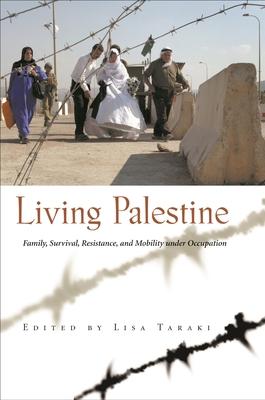This groundbreaking volume takes an in-depth look at how individuals, families, and entire households "cope," negotiate their lives, and achieve personal and collective goals in Occupied Palestine. Contributors raise critical questions about tradition vs. modernity and the sociocultural consequences of emigration. Living Palestine establishes that household dynamics (i.e., kin-based marriage, fertility decisions, children's education, and living arrangements) cannot be fully grasped unless linked to the traumas of the past and worries of the present. Likewise, family strategies for survival and social mobility under occupation are swept up in the tide of history that engulfs the world in which Palestinians live and struggle. Living Palestine is drawn from an expansive research project of the Institute for Women's Studies at Birzeit University which sought to examine the Palestinian household from multiple perspectives through a survey of two thousand households
in nineteen communities.

Living Palestine: Family Survival, Resistance, and Mobility Under Occupation
This groundbreaking volume takes an in-depth look at how individuals, families, and entire households "cope," negotiate their lives, and achieve personal and collective goals in Occupied Palestine. Contributors raise critical questions about tradition vs. modernity and the sociocultural consequences of emigration. Living Palestine establishes that household dynamics (i.e., kin-based marriage, fertility decisions, children's education, and living arrangements) cannot be fully grasped unless linked to the traumas of the past and worries of the present. Likewise, family strategies for survival and social mobility under occupation are swept up in the tide of history that engulfs the world in which Palestinians live and struggle. Living Palestine is drawn from an expansive research project of the Institute for Women's Studies at Birzeit University which sought to examine the Palestinian household from multiple perspectives through a survey of two thousand households
in nineteen communities.